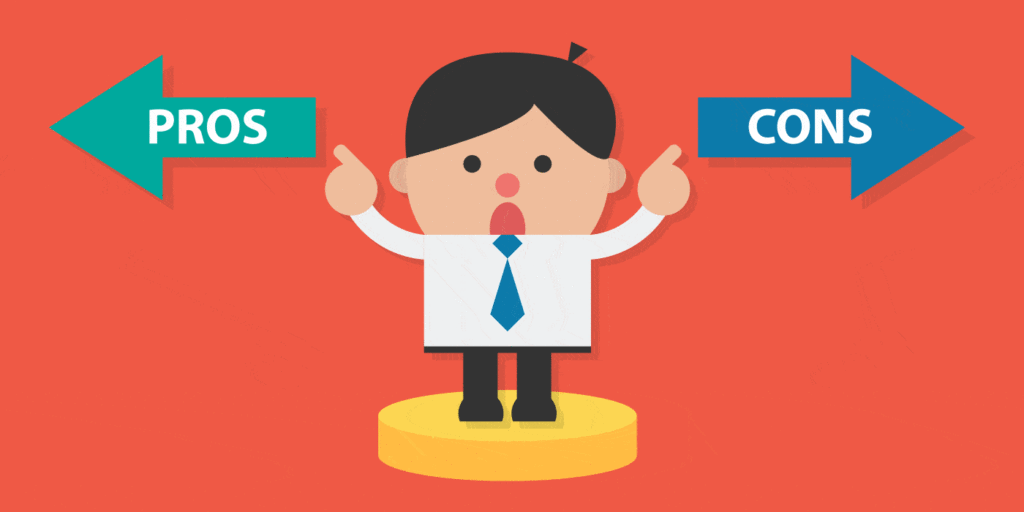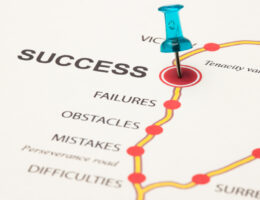Decision-making can be a difficult task for people. If you are struggling with decision-making, this post is for you! Decision-making is important because it helps us improve our quality of life and career success. To help make decisions easier, we need to improve decisiveness in three ways: improving self-awareness, understanding the consequences of indecision, and developing an effective plan. These steps will make it much easier to overcome the fear of change and experience more peace in your life.
Be aware of your emotions and how they may affect the decisions you make
It is important to be aware of your emotions and how they may affect the decisions you make. For example, there have been many studies that show that when someone feels negative emotions such as fear or anxiety, they will tend to avoid risks and not take chances on new ideas. This means that it will be more challenging to make decisions and take risks if you are feeling negative emotions.
The way that someone feels can impact their decision-making in other ways too. For example, some people experience regret when they know they have made the wrong decision or feelings of guilt for not doing something right the first time, so they repeat an action even though it may not be the best thing for them. Suppose someone has a lot of emotional baggage from past mistakes and bad decisions. In that case, this will affect how those individuals decide on future courses of action, which could cause chronic indecisiveness because there is always doubt about what course might work best without any real knowledge of whether one option is better than another.
Take time to look at all options before making a decision.
By taking time to look at all options before making a decision, you have the opportunity to create better decisions. To improve decisiveness in your thoughts and actions, take time to reflect on different aspects of each situation or option available. This will allow you to make more informed choices about which option(s) would be best for what you are trying to accomplish.
Some people may seem like they never need any extra input, but this couldn’t be further from the truth! Everyone needs help deciding sometimes – it just depends on how much support each individual wants when making their final decision. It can also depend on whether someone prefers quick thinking or slow thought processes while weighing all possible outcomes of an idea.
Understand the decision-making process
You should realize the decision-making process is about more than just being decisive. The first step in the decision-making process, according to Psychology Today, is gathering information and data. You must take your time with this stage of the decision-making process before committing to any actions or decisions.
The second phase involves evaluating possible solutions and determining which one will work best for both short-term and extended-term goals. Suppose there are several options available, but only a few seem like they might be viable choices. In that case, it may make sense to consider those possibilities carefully before making an ultimate choice.
After deciding on a solution, you should move forward with implementing it so that you can get results quickly rather than wasting too much time on indecisive thinking or analysis.
Please write down the pros and cons for each option, then rank them in order of importance.

By writing down the pros and cons for each option, you will make a better decision.
Pros: it’s easy and fast!
Cons: less accurate than other methods of making decisions
Rank in order of importance: (rank the pros from most important to least important)
(Highly Important – Lowest Priority)
Pros are that it is an easy way to think about all your options quickly before jumping to conclusions. It also takes less time than writing out complete pro/cons lists or using deliberate thinking techniques like listing out as many possible outcomes as possible could do without any evaluation until you get stuck on one outcome where there are no more written down. Cons include being inaccurate when trying to rank items in terms of priority.
Get organized and plan.
Make an organized to-do list and use a calendar for scheduling your days. This will allow you to plan, reduce stress levels, and improve your confidence in making decisions.
This quote from the Dalai Lama is perfect for deciding: “If you want others to be happy then practice compassion; if you want yourself to be happy then practice compassion.” Learn more about how this philosophy can help with decision-making here!
Ask other people what they think about the situation or ask for their advice on what to do next.
You can ask other people for their opinion about the situation or ask for advice on what to do next. They may have experience with a similar decision. They can provide valuable insight into your options, how well each option might work in different situations, and which ones are most likely to lead you toward success.
- Ask family members and close friends.
- Talk it through out loud.
- Get input from people who aren’t directly involved
Consider alternative solutions if one solution does not seem right to you
Alternative solutions are the first thing to do when stuck in a decision. If you are facing any issue and don’t know how to make the right choice, you need to take some time out of your day to find alternative solutions that may not seem obvious but still fit within the parameters set by your original problem.
Mentally consider all three options before making one final decision and always be open-minded about any solution that comes to mind, even if they aren’t initially what came into your brain at first glance. This will ensure that you get creative on ideas while considering more than just two choices which can lead to better results.
If you are still having trouble with deciding, take a break

You may face a situation when you are unable to decide what to do or make a decision. You can feel overwhelmed and stressed because of that, so it’s important not to procrastinate on making decisions.
If you’re still having trouble deciding, take a break from thinking about it until later, when your mind is clearer and more refreshed. If the problem does not seem as tricky after some time passes by, then revisit the issue to come up with an answer or compromise together. However, if this doesn’t work out for you, consider seeking help from others who will be able to read through all facts before coming up with their conclusion.”
Evaluate your options, think about what you want to do, and make a list of pros and cons for each option.
Evaluation is a process of finding out what the pros and cons of different options are. The only way to make a good decision is to know all possible outcomes, so we must evaluate each option before making our final choice.
For example: If I’m deciding between two jobs, ‘A’s and ‘B,’ then one job offers more money but has longer hours while another job may offer less pay per hour but shorter work hours, which would be better for my personal life? Evaluating the worth of each job will help us decide which one is best suited to your needs. It can also tell us whether or not the tradeoffs on either side are worthwhile depending on how much time you have available in your day-to-day schedule.
Think about how you feel when making this decision
When you take on a decision, think about how you feel when making this decision. Is it something that will bring you joy or anxiety in the future?
This may seem like an obvious one, but so many people make decisions without considering their feelings on the topic, and they’re more likely to regret those choices in the long run. Decisions are also important because not all of them can be changed later down the line – some consequences cannot be taken back.
Know what you want
It is important to give some thought to this before making decisions and improving decisiveness. It is also essential to think about the best possible outcome of a decision and any adverse outcomes that could happen.
- If you’ve always been indecisive when it comes to your career, whether or not the time has come for change
- The importance of knowing yourself well enough to know which major avenues are worth pursuing after college
- How can one improve their decisiveness? What do they need to become more decisive?
- To find out how much information an individual needs before being able – make informed decisions.
Consider what others might say if they were asked their opinion on this

Consider what other people might say about this decision. Would they be supportive of it or not?
Potential advantages to your decision: people will think you are decisive and confident in yourself so that others can see you as a leader and follow suit. The more decisions made, the better chance there is for success on any particular one because we have eliminated all other possibilities by making our choice.
Potential disadvantages to your decision: – if something goes wrong with this particular decision, it could lead to bigger problems like being fired from work or even losing savings if a certain investment doesn’t pan out well.
Be sure to consider what other people would think about the situation – do they agree with it or disagree with it?
Make a final choice after considering all these things, and then take action!
You must make a final choice after considering all these things and then take action!
To improve decisiveness, you should first identify the problem. It could be that you are too indecisive or have been invalidated in your past decisions, for which this is a result. Another possibility is an imbalance between various needs and desires, leading to uncertainty about what to do next.
There might not even be any clear choices presented before you because it’s unclear how each option will benefit you. Regardless of the issue at hand, effective decision-making begins with determining where exactly it stems from to make positive changes accordingly.
When making decisions, try asking yourself these questions: What are my priorities right now? Do I want to continue with these?
Consider the cost, time, and effort before reaching a final decision
You must take the time to consider the cost, time, and effort required for each option before making a final decision.
This includes considering whether you have enough information to make an informed choice or if any of your options are off-limits. For example, is there someone else who can help with this decision? If so, it may be helpful to take some pressure off yourself by asking them what they would do in that situation.
Keep in mind that sometimes there’s no correct answer – make decisions based on what makes you happy!
You must keep in mind that sometimes there’s no correct answer. It’s up to your judgment, and you must be happy with the decision that you make.
Keep in mind that it is important not just to consider what is good for other people but also what suits our personality, needs, wants, etc. You should always keep these things in mind before making a final decision on something significant or life-changing, so we are more likely to find success later down the road.
We need as much information as possible when making decisions because it will have an impact on ourselves and all those around us, including family members, friends, and colleagues alike! So gather together all of the relevant facts necessary beforehand so nothing gets overlooked during this process.
To sum up,
Deciding on what to do can be difficult, but there are a few ways you can make the process easier to improve decisiveness. The key is understanding your decision-making process and being aware of how emotions may affect your decisions. When faced with an option, you must take time to look at all options before deciding and consider the pros and cons for each. Write down these points in order from most important to least important so it will be easy to rank them later–this way, you know which aspects matter more or less than others when deciding between two possible solutions. If one solution does not seem right about right for you, don’t worry! Consider alternative solutions.



